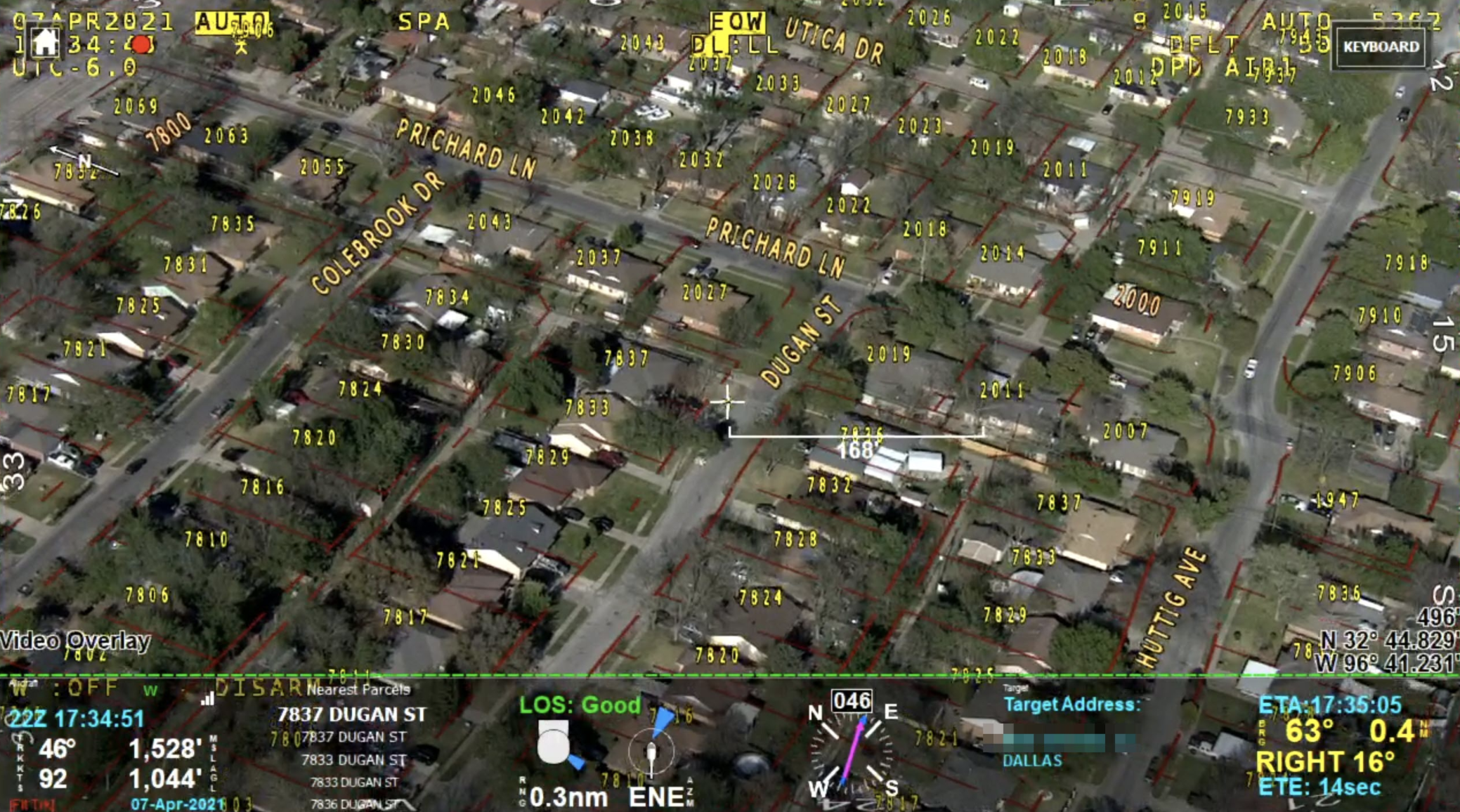Last week, the online activist group Distributed Denial of Secrets shared 1.8 terabytes of footage recorded by police helicopters, most of it from the Dallas Police Department. Screenshots taken from the footage show aerial surveillance of crowded public events and quiet neighborhoods as well as more intimate scenes: people unloading their cars in front of their house or relaxing in their backyard.
“DDoSecrets cofounder Emma Best says that her group doesn’t know the identity of the source who shared the data and that no affiliation or motivation for leaking the files was given. The source simply said that the two police departments were storing the data in unsecured cloud infrastructure.”
That gets at one issue, which is the lackluster data storage practices of the city of Dallas. Earlier this year, a city IT worker deleted huge troves of police data, most of which included evidence in thousands of family violence cases, according to a city audit. In this case, no data was lost.
“The Department cannot confirm at this time how much video information was breached,” police spokeswoman Melinda Gutierrez says in an email. “It is important to note that this video data was not lost nor is it missing. The Department, City of Dallas IT Services, and the 3rd Party vendor are working closely together in support of resolving this potential breach.”
Gutierrez says police “will provide a full response at the conclusion of the investigation.”
The other issue is the surveillance itself. Privacy advocates have often criticized the reach of police departments’ so-called eyes in the sky. Drone technology, cheaper and easier than sending up a helicopter, is making it even easier for police to watch residents from above.
Dallas police officials briefed City Council members Monday on the department’s use of drones—its “Unmanned Aerial Systems,” or UAS.
Law enforcement agencies enjoy initialisms and acronyms as much as they enjoy new surveillance gadgets, and police departments across North Texas are ramping up their drone programs. Dallas has five trained drone pilots. That lags behind Arlington PD’s 22 certified operators, but the department hopes to put many more eyes in the sky, per Monday’s briefing.
The drones are used for everything from crime scene analysis to crowd surveillance to search and rescue. Unlike a helicopter, they can fly inside buildings and under trees. Police say they’re unobtrusive and help avoid confrontations that can turn violent.
But as Faine Greenwood, an assistant researcher at the Harvard Humanitarian Initiative and a critic of the largely unregulated Wild West of aerial surveillance, writes:
“…this argument ignores that drones hold enormous—albeit unsettled—symbolic meaning in our society. They are a highly visible, buzzing, blinking way to remind people that they’re being watched. The limited public opinion research that exists on drones shows that Americans hold ambiguous views on the technology that are highly dependent on how they are being used and one’s political affiliation.
Worryingly, one recent study found that participants were more likely to approve of law enforcement using drones over primarily African-American neighborhoods than they were to approve of drone flights over primarily white neighborhoods. Critics worry that the presence of drones and other means of aerial surveillance will have a ‘chilling effect’ on the public, preventing people from exercising their legitimate right to peaceful protest.
What’s more, police drones are a highly effective way for law enforcement to “mark” the aerial territory over news-worthy events. While plenty of journalists and activists use drones to collect their own aerial information, they’re often reluctant to fly when there’s a chance they could be accused of interfering with a drone or a helicopter operated by police.”
Police officials say the drones have limits. In Dallas, they “will not perform a surveillance flight for the purpose of generating probable cause,” and “cannot fly directly over people,” according to Monday’s presentation. State guidelines prohibit drone video recording outside of warrant searches, “in-progress felony offenses,” and “life and death incidences.”
Of course, police have discretion in deciding when aerial surveillance is appropriate. The next time you get that feeling someone’s watching you, look up.




